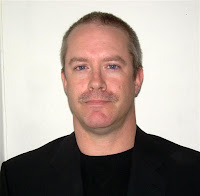Critical thinking requires that a person reflect upon his or her experiences and then participate in a systematic examination of other views and facts related to the topic (Brown & Keeley, 2012). A key component within this process is one's willingness to ask questions. This process of asking questions enhances and deepens one's understanding of an issue or a problem. As part of the deeper examination of an issue or problem, one should explore the strengths and weaknesses of his or her views. In addition to understanding the strengths and weaknesses of our views, one should strive to objectively understand the strengths and weaknesses of others' views.
Students engaged in critical and creative thinking are expected to understand a body and foundation of knowledge, rather than striving to develop specific answers to questions or a fixed set of facts. As technology and culture change, so will the questions being asked and their answers. The key is that one knows how to solve complex problems and create solutions to tough problems and situations using an objective process of evaluation. If people only have answers to specific questions, society is limited in its ability to apply problem solving skills. By developing the tools needed to create relevant and effective solutions, one is armed with the knowledge and skills needed to face the challenges in any industry.
The video I posted below is very helpful in exploring how the process of critical thinking helps one solve problems. Developing these skills takes time and effort. Brown and Keeley (2012) noted one must also be willing and able to ask and answer questions “at appropriate times” something mentioned in the video as well (p. 3). With this in mind, consider some of the ways you’ve developed your critical thinking skills since you started school.
This video examines critical thinking and how these traits assist one in developing solutions to problems.
Browne, M. & Keeley, S. (2012). Asking the right questions: A guide to critical thinking (10th ed.). Upper Saddle River, NJ: Pearson Education.
Jim Triplett is an author, instructional designer, and instructor in the areas of finance, economics, ethics, and critical thinking. Jim holds Masters Degrees in Finance, Organizational Leadership, and Instructional Design Technology, is ABD / PhD in Organization and Management, and is currently completing a doctoral degree, Ed.D, in Educational Leadership with a focus on Educational Technology.







No comments:
Post a Comment